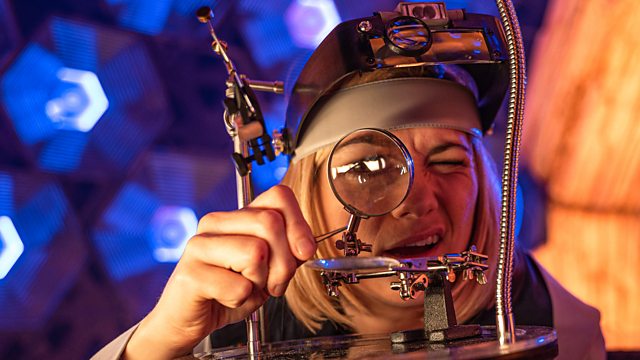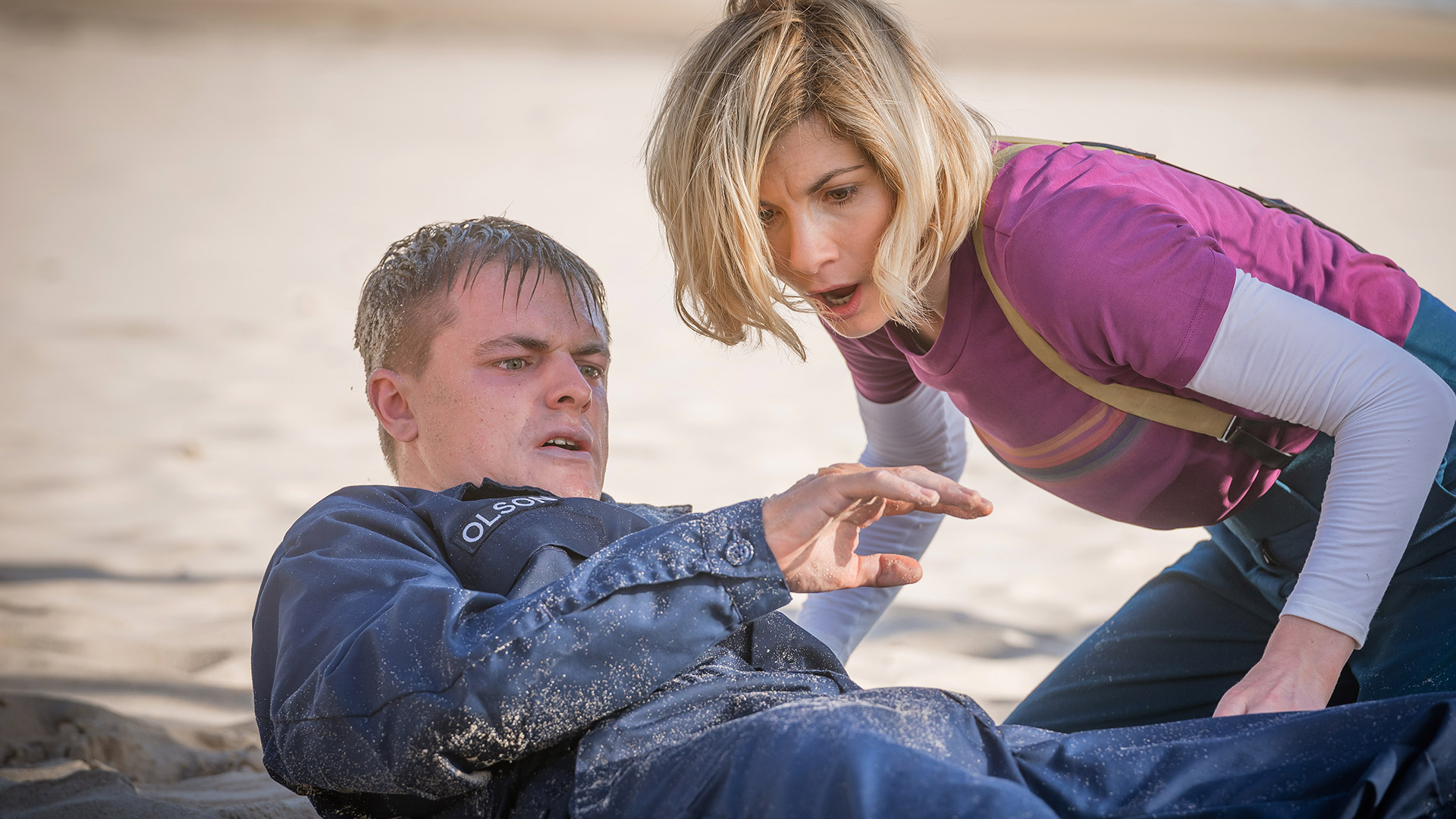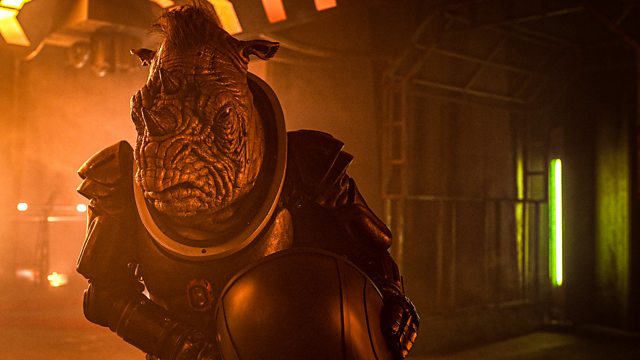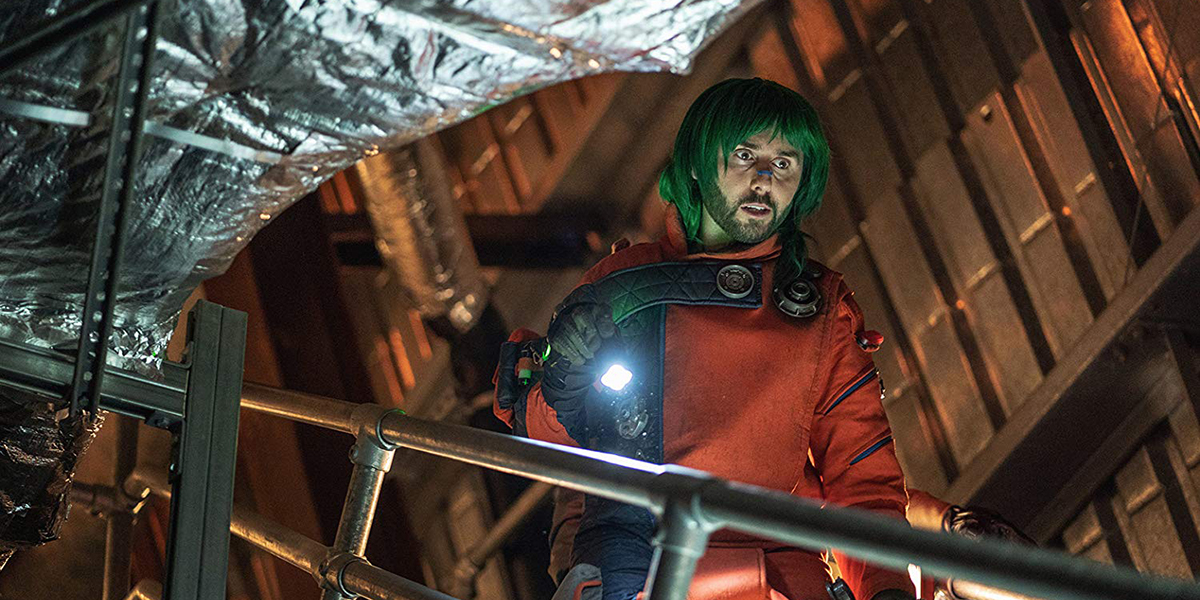We may be stealing episode titles directly from RTD now, but Ascension of the Cybermen owes a lot more to 1980s Cybermen stories. Mainly in that it's not very good.
This is a difficult episode to review. So much will depend on what happens in the finale. However, I've always believed, particularly in Modern Who, that every episode should be able to stand on its own merits. So, here we are, reviewing the first half of an incomplete story. It's a surefire way for me to look silly in a few days time after the final episode airs and any speculation I engage in here turns out to be completely wrong. As it is, I've got a sneaking suspicion I know what direction The Timeless Children is going to go in, but to avoid potentially looking like a fool, I'm going to keep those musings to myself until next week when I can claim that, whatever happens, I was right.
The problem that Ascension of the Cybermen has is the same one that afflicts a lot of 'first-half' episodes. There's not enough material to sustain the story for 50 minutes. Much of what happens just feels like stalling until it can reach the cliffhanger. That strategy can work, particularly if the cliffhanger is a sufficiently jaw-dropping one (think The Stolen Earth or World Enough and Time). But here, it is all far too predictable. Companions being threatened by an army of Cybermen feels pretty pedestrian in a Cyberman story and, to the surprise of absolutely nobody, we get the return of the Master. It tries very hard to be big and epic, but it can't quite manage it. In some ways, it's a victim of its own marketing. If the promotion material for the episode hadn't been leaning so heavily on how 'game-changing' this was going to be, I might not have felt quite so underwhelmed by the cliffhanger that we actually got. There's only so many times you can promise to change the game.
The Cybermen themselves are used pretty effectively in this story. I'm fully aware that the visuals are doing a lot of the work here. Doctor Who has rarely looked better. Yes, the Cyber drones are a bit goofy, but they do lead to one of the best action sequences we have seen in the show. There's some striking visuals later in the episode as well. The bits of dead Cybermen floating through space. The Cyber army beginning to wake up and menacing the companions and their fellow travellers (don't ask me to remember any of the guest characters' names, that would imply they had any function in the story or discernible personalities). It's all beautifully choreographed and directed and maintains a level of excitement that is not always present in episodes written by Chris Chibnall. There may be a hollowness to the whole thing, but it is at least compelling.
In fact, I think the Cybermen would have worked better here without their leader. After an interesting first appearance, the follow-up with Ashad is distinctly underwhelming. His discussion over holographic projection with the Doctor is a particular lowlight. There's nothing remotely compelling about The Lone Cyberman's justifications; he's just another 'generic evil guy with delusions of grandeur' in very much the same mold as Tim Shaw. The Doctor's apparently profound revelation that Ashad is just doing it because he hates himself is about as cliched a villainous motivation as you could possibly imagine. I said in my review of The Haunting of Villa Diodati that I was hopeful that his almost religious zealotry for Cyber technology would be followed up in interesting ways. Suffice to say, it was not. It feels like Chibnall is reaching for some compelling themes here, but can't quite manage it. The Cybermen have historically been about the absolute subjugation of the individual beneath ranks and ranks of identical machine creatures. If you're going to break with that tradition and have a Cyberman with a distinct and definable personality, at least try to make it an interesting one.
There's a similar lack of follow-through in how the episode deals with the remaining humans. There's the beginning of some kind of subtext in describing them as refugees, fleeing a conflict that has ravaged their entire civilisation, unwanted pariahs because the Cybermen would always come after them. Unfortunately, despite being hinted at, it's never given any dramatic weight or narrative importance. And once again, we fail to properly deal with the consequences of the Doctor's actions. Her decisions in the previous story lead directly into the events of the story and may be lead to the resurrection of the Cyber empire. That feels like something that should face more scrutiny than a pretty unfunny joke about how there's never a good time to mention that your species has nearly been wiped out. The Doctor is allowed to just carry on as if nothing has happened. It genuinely felt earlier in the season like we were getting to the point where the companions might be in a position to challenge her extremely baffling morality, but in the hands of the showrunner, there is no such luck.
Surprisingly, I actually quite liked the subplot involving Brendan and his life in what I assume is 20th century Ireland. The whole narrative comes out of nowhere, and doesn't any point connect to the main plotline, but that's OK for the moment. As with a lot of other things, much will depend on what happens in the finale. It feels like a very Moffat-esque writing quirk, in that the story you expect is not quite the one that's being told, and it is all done with minimal screen time and very economical storytelling. It feels unpredictable in a good way. For the first half of the episode or so, I was convinced that we were getting an origin story for the Lone Cyberman and a whole section of the story dedicated just to that would have elicited little more than an eyeroll. But as it goes on, it's increasingly clear that that's not what's happening at all. Why is he seemingly unable to die? What is going on with his distinctively not aged father erasing his memories? There's still plenty of scope for the whole thing to fall apart, and if it's going in the direction I think it is, it may leave me feeling decidedly unimpressed. The storyline can't quite redeem the entire episode on its own, as it feels so much like a sideshow at this point, but colour me suitably intrigued to find out how it all fits together.
I haven't talked much about the performances of the regulars, but they're pretty much what we've come to expect. Jodie Whittaker continues to impress, and her more serious and snappy performance helps sell the tension in a way that the other characters don't really manage. I'm very much looking forward to finding out what she can do with a third series in the role. The "fam" are pretty functional here. While it's nice to see Graham and Yaz interacting at all, and more than holding their own among a ship full of Cybermen, it very much feels like we've gone as far as we can with these characters, at least as a unit. The mileage has run out and it's time for some new, or maybe even just fewer, companions. It's a shame because I enjoy all their performances, and two of them have been badly wasted in their roles, but it's time for a fresh approach I feel.
Ascension of the Cybermen is not terrible by any means. It flirts with some interesting ideas, but does so in a very half-hearted way. It seems to be operating under the assumption that a suitably grandiose army of Cybermen will be enough to deliver the kind of excitement we usually get from penultimate episodes. This is the slot that has been filled by The Sound of Drums, The Pandorica Opens and Heaven Sent and we've come to expect, rightly or wrongly, something bold and ambitious. But this episode is held back by its lack of ambition. I struggle to believe that the height of what Doctor Who can achieve in 2020 is a remake of Earthshock (and let's be honest the lack of Beryl Reid clearly having no idea what she's agreed to appear in means this was always going to be inferior). There's nothing inherently wrong with that as an idea, and it provides some effective moments and great visuals. It might have worked better as a mid-season episode, but as a build-up to a finale that has been billed as "nothing will ever be the same again", it can't help but feel underwhelming.
Random musings
- Yes, the transition from the first scene through the eye of the Cyber helmet to the opening credits is very cool.
- Sacha Dhawan seems more comfortable in the role of the Master in the few seconds he appears here than he did throughout all of Spyfall. This feels like a positive development. And he looks pretty damn hot in purple.
- I haven't even mentioned Ko Sharmus yet. I have a suspicion I know who he might be, but he feels very much like a 'let's talk about him next episode' character.
- The trailer for The Timeless Children was the most interesting 20 seconds of the episode let's be honest. I think it's pretty clear that the finale is either going to be great or quite shockingly terrible, and there's not much room for anything in between.
Rating
6/10






